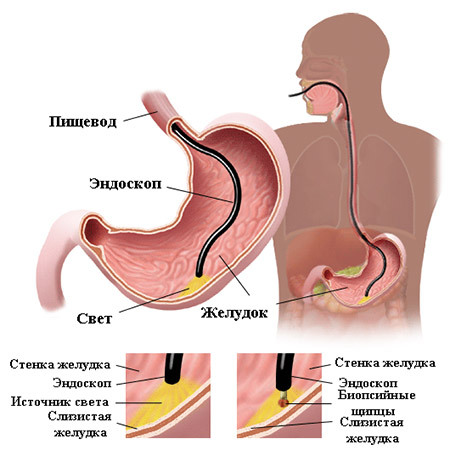The digestive system breaks down and absorbs all the food and fluids you consume into nutrients needed to fuel the body. The digestive system runs from the mouth to the anus and includes the oesophagus, the stomach, the small intestine, the large intestine or colon, and the rectum and anus.
It is around 9-10 metres long.
Depending on what has been eaten it can take between 12-48 hours for food to travel the length of the digestive tract.
The bowel is made up of three parts:
| Parts | What it does | Length |
|---|---|---|
| Small intestine/small bowel | Absorbs nutrients in the digested food. | The small intestine is 6 metres long but is called ‘small’ because it is narrower. |
| Colon | Takes up water as digested food passes through. | The colon and rectum make up the large intestine and together are 1.5 metres long. |
| Rectum | Stores waste material until it is ready to be passed out. |
What is the normal frequency for bowel movements?
Gastroenterologist Dr David Devonshire, from Monash Health, says there is no set rule on the right number of times to use your bowels. Anything from several times a day to several times a week can be normal, as bowel habits can vary between individuals.
“It’s a sudden change in bowel habits that can signal a problem.”
Dr David Devonshire

Stool (poo) texture is more important than frequency. Stools should be soft, sausage-shaped and easy to pass. It should only take a minute or so to empty your bowel. If it takes longer than this, you may be experiencing constipation.
Stools are almost always brown in colour due to the bile needed for digestion. Some pigments in foods (such as beetroot) can affect the colour of stools and some foods can not be broken down by our gut and will be excreted whole (such as corn). If your stool is very dark/black or very light grey or the colour of a paper bag, and this is a change from your normal stool colour, you should see a doctor as this can be a sign that something is not right.
It’s normal for stools to smell. Odour is caused by the trillions of bacteria in your digestive system that enhance metabolic and digestive processes. So you can take some consolation in the fact that smelly poo means a healthy gut!
What’s not normal?
| Symptoms | Usual causes | What to do | |
|---|---|---|---|
Blood
|
Usually caused by:
|
These conditions may be a sign that you are constipated and are straining too hard, but if there is blood in the stool see your doctor to check for internal bleeding. | |
| Leakage
Bowel incontinence is the accidental or involuntary leakage of faeces or wind or soiling of underwear. |
This is commonly caused by damage to the muscles around the anus such as through constipation but may also be associated with diarrhoea. | A doctor can determine the cause of bowel incontinence and can prescribe effective treatments or therapy to improve bowel control. | |
| Constipation
When a person is constipated their stools are usually hard, dry and painful to pass; they may also experience bloating and cramping in the abdomen. |
Constipation can be caused by:
|
In most cases constipation can be prevented by simple lifestyle changes such as:
In some cases natural laxatives may be needed to treat constipation. See a doctor for further advice. |
|
| Diarrhoea
Diarrhoea occurs when the intestinal lining becomes inflamed and irritated, making it difficult for water to be absorbed from food waste. This results in unformed, loose bowel motions, often accompanied by painful cramps, general weakness and needing to go to the toilet urgently. Other symptoms include nausea, vomiting and fever. |
Diarrhoea may be caused by:
|
Most cases of diarrhoea will only last a couple of days. It is important to:
If the diarrhoea persists for more than 2-3 days or is accompanied by severe pain, blood in the stools or high fever, see a doctor immediately. |
|
Other conditions
Some abnormal bowel habits may be symptoms of gastrointestinal conditions such as irritable bowel syndrome, inflammatory bowel disease or food allergies or intolerances. “Not all changes in bowel habit indicate disease,” says gastroenterologist Dr David Devonshire. “However, a persistent change in bowel pattern, especially blood in the stool if you’re over 40 years of age, needs prompt review by your doctor. This may need further assessment by stool testing, blood counts, scans or colonoscopy.” (Performed under sedation, a colonoscopy involves a long thin tube inserted up the rectum to look for polyps).
Tips for good bowel health
- Eat a healthy diet including foods high in fibre such as whole grains, fruits and vegetables
- Drink 6-8 glasses of water (1.5-2 litres) daily
- Get active to help move food through the digestive tract
- Allow enough time on the toilet so you don’t need to rush or strain
- Use the best position for emptying your bowels: lean forward, with a straight back, forearms on your thighs and feet slightly raised if possible (you may find a footstool helpful)
- Try not to strain or hold your breath
- Be aware of your bowel habits so you notice when something changes
- Maintain a healthy weight and don’t smoke because obesity and smoking are associated with an increase in risk of bowel cancer
- If you are over the age of 50, talk to your doctor about appropriate screening tests for bowel cancer



